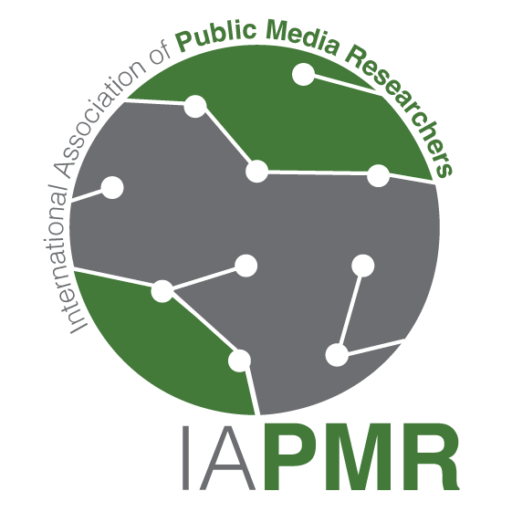Hilde Van den Bulck is Professor of Communication and Head of the Department of Communication at Drexel University, Philadelphia, USA. Prior to joining Drexel, Hilde was Professor of Communication Studies, Head of the Department of Communication, then Associate Dean of Research and later Dean of the Social Sciences at the University of Antwerp in Belgium. For 12 years she served as the Vice-Chair of the Sectorial Media Council in Flanders, an advisory body to the Flemish Minister for Media. Her research focuses on media structures and policies, especially the impact of digitalization on legacy media with a focus on public service media. Her other research interests include media culture, including fandom and celebrity culture.
Looking back, is there any particular discussion or debate around Public Service Media that remains unsolved despite being the object of extensive academic research?
For me, there are probably two issues: one empirical and one more normative. The empirical issue is to provide comprehensive data that show the importance of public service media to both individuals and society’s well-being. There have been attempts to show how having a strong PSM news service contributes to democracy. But PSM are about so much more: shared culture (both as artistic expressions and ways of seeing and being), identities, epistemic welfare… all the ways in which PSM are an intangible part of our lives. The past ten years or so, arguments have focused on how much they contribute to the media economy. These are important lobby arguments but, to me, they are also part of the problem, as it gives into the neoliberal dominant discourse of reducing the importance of PSM to economics rather than the cultural and societal role.
The normative issue is a particular tension. On the one hand, on account of their public nature, funding and remit, PSM are essentially mainstream media. On the other hand, as academics, we have exalted expectations of PSM organizations in terms of pushing the boundaries and being at the forefront of progressive change, which is all too often not the mainstream position. We want them to be “more” but do the tax/license fee payers want this? It is somewhat related to the old idea that PSM organizations give people what the organization thinks they need, not necessarily just what they want. However, that paternalistic view was not necessarily progressive. In a way, this is a question about interpretations of media in democracy, what in the US tends to be identified.
You moved from Europe to the US. With PSM often being understood as a genuinely European concept, is there anything that European PSM can learn from their American counterparts?
American public media at first sight appear to play a relatively small role in the US media landscape, as they were never meant to “disturb” the market, only fix market failure. Government funding, called congressional appropriation, is less than 500 million/year, accounting for $3.16 per capita, compared to $114 in the UK and $180 in Norway. As it is, this government funding accounts for just 14% of their budget, while 29% comes from membership. Their remit does not allow them to embrace digitalization, so it is hard to remain visible in this saturated media landscape. Still, NPR (radio) and PBS (TV) are important fixtures in that landscape. Chris Ali and I just published the results of a study on why Americans trust PBS, and we found audience members from across the political spectrum showing high levels of trust in the public television news but also something we called “The Mister Rogers Effect”: people grow up with public media from Sesame Street and Mr Rogers onwards – it is a good reminder that trust in media is built over time, even in this fast-developing scattered media landscape, public service media can remain that “island of trust”.
The other thing that European PSM can learn from US public media: because they are highly dependent on individual memberships, they are good at reminding their audiences how much they mean in people’s lives, with clips from audience members saying what PBS has meant in their lives. I always feel that European PSM are bad at reminding tax payers about their importance, some great examples like the BBC Music’s Perfect Day – BBC promotion (With Artist’s names) and God Only Knows – BBC Music videos notwithstanding.
The new Trump government has already changed US media policy with international implications, not least in terms of the conduct of global digital platforms. Is there anything PSM can (still) do to mitigate the power of platforms?
The impact of the Trump administration on all things related to media and platforms is very much a moving target, also because of the backlash Trump is creating in Europe that, in response, is starting to look into strengthening its own digital presence. Tarriff wars are a bad match for globalization of any kind, so let’s see what will happen.
Certainly, in the US, public media are more than ever under attack, from Republicans claiming their programming is “too woke” and, of course, disliking any and all state support. Just recently, the CEO and presidents of PBS and NPR were called to a hearing, where Republicans threw the familiar playbook at them: Your news is too left-leaning, Elmo is too woke. Still, US public media perseveres and provides amongst the most critical political reporting at a time when many commercial US media seem to be self-censoring. As the ripple effects of the US regime change and of the other unspeakable things going on around the globe continue, public service media will remain more important than ever as anchors for drifting societies.
What would your advice be for a young scholar who is starting to work around Public Service Media?
My main answer is that we need new generations of scholars working on public service media. Other than that, there is nothing worse than being told what to do by one of the oldies.

